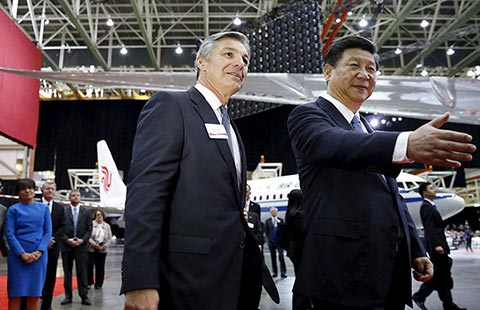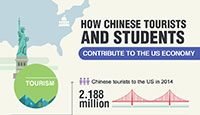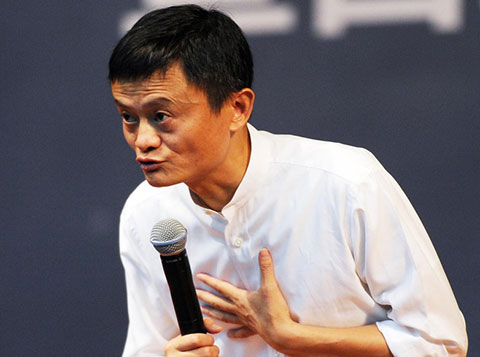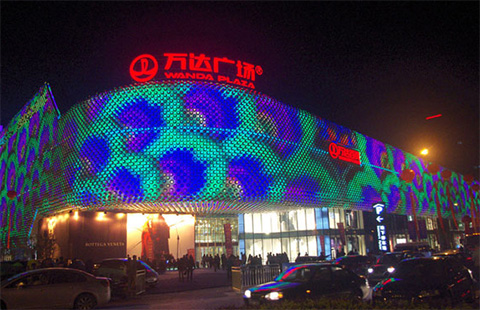Massaging the message for the post-90s
By Shi Jing in Shanghai (China Daily) Updated: 2012-07-02 09:29
|
 |
|
The post-1990s generation in China is more in favor of online ads compared with traditional outlets. [Photo / China Daily] |
Advertisers start waking up to online marketing opportunities
Marketers and advertisers know where the big money will come from in the years ahead but the goal to woo the next generation of high spenders, those born after 1990, has remained elusive, at least until now.
Take home-grown sportswear giant Li Ning Co Ltd for example. It found that living off the name of its founder, the well-known "Prince of Gymnastics", in the 1980s didn't work for the post-1990s generation as it did for the previous decade of consumers. In consequence the marketing people came up with a whole new approach to promote the company's products.
They changed the company's logo from a capitalized letter L to the gymnastic movement that the athlete Li Ning was famous for and introduced a new advertising slogan - Make the Change. The company also spent tens of millions of yuan mounting an advertising campaign in June 2010 that centered on a 30-second TV commercial anchored by celebrity badminton player Lin Dan, the five-time All-England champion and the reigning Olympic champion. However, the campaign was widely seen as a flop.
The Li Ning campaign to woo the post-1990s generation is often cited as an example of how vendors sometimes misread the feelings and mood of this young and restless group. At a forum in Beijing earlier this year, Chen Gang, deputy director of the School of Journalism and Communication at Peking University, said that Li Ning's ad, although expertly produced, conveyed a message with which its intended audience failed to identify.
A more successful commercial for the chocolate bar Snickers works because it is so outrageous, showing the transformation of a sickly damsel in ancient costume into a modern male football player after "she" takes a bite of the candy. The ad distinguishes itself from many others by shunning the bignames who endorse many other brands of consumer products.
"Snickers is aiming to shape itself into being the most influential brand among young people in China," said Zhang Qing, vice-president of Mars China, the chocolate's maker, explaining the success of the Snickers ad among the post-1990s generation.
Marketing experts and advertising executives agree that they need to think outside the traditional mode to come up with ideas to court the post-1990s consumers who are not easily persuaded by the big-name stars used in the majority of ads for fashion, cosmetics, food and beverages. They are also exploring different ways to deliver their messages to post-1990s potential customers, resulting in a gradual shift in favor of online ads from the traditional channels. Xu Jin, chief executive officer of the advertising company Lowe and Partners Beijing, said the post-1990s are "hard to please".
Nonetheless, pleasing them is essential because the stakes are high for vendors at a time when this generation is beginning to join the job market. They started graduating from universities this year. Generally, they are educated better than consumers from previous generations. They are also more exposed to consumerism and feel more confident about the future than their predecessors, helping to lessen any propensity to save.
"The post-1990s are a group of young people hard to comprehend or interpret. We cannot use a single word to define this generation. However, they will become the pillar of China in the next 10 or 15 years.
Therefore, companies, brand researchers and interactive research companies should try to figure out the current trend," said Xu of Lowe and Partners.
"Compared with taking other people's advice or following in their footsteps, the post-1990s are more willing to think or do things in their own way. They are quite practical. Therefore, when we are creating advertisements in the hope of attracting this generation, we should understand their culture first. Then we can give thought to whether the ad should be interactive or digital," he said.
"We have been advertising in traditional ways but reaching out to digital sales channels gradually. With the growing popularity of Facebook, Twitter, Renren, QQ, MSN and micro blogs, the methods of social interaction are changing dramatically. It can be said that sales or advertising via the Internet and mobile communication devices are the most powerful ways to promote purchases by young people," he added.
A survey conducted by Zhaopin, one of China's biggest employment agencies, found that 82.2 percent of university graduates born after 1985 earn an average monthly salary of no more than 3,000 yuan ($472) while 91.1 percent of post-1990s can now make a monthly salary of the same amount.
Also, the post-1990s are having more of a say at home in terms of making purchases for the family.
More than 60 percent of the post-1990s generation make the decisions at home when it comes to buying new digital products, going on trips and dining out, according to a recent survey conducted by the Beijing-based Horizon Polling Group among 2,099 people born after 1990 in Shanghai, Beijing, Guangzhou and Wuhan.
It also found that more than 30 percent of the young people interviewed have a say in their home when it comes to the purchase of larger durable goods such as property or automobiles.
- China relaxes control on RMB cash inflow for multinationals
- China top economic planner refutes doubts on growth data authenticity
- Bank of China forecasts 7% growth rate in fourth quarter
- Views from the boardroom
- Chinese president reassures US business leaders on economy
- Leaders target ongoing bureaucratic inaction
- Transforming the pork market
- Business sentiment among Japanese companies in China improves

















